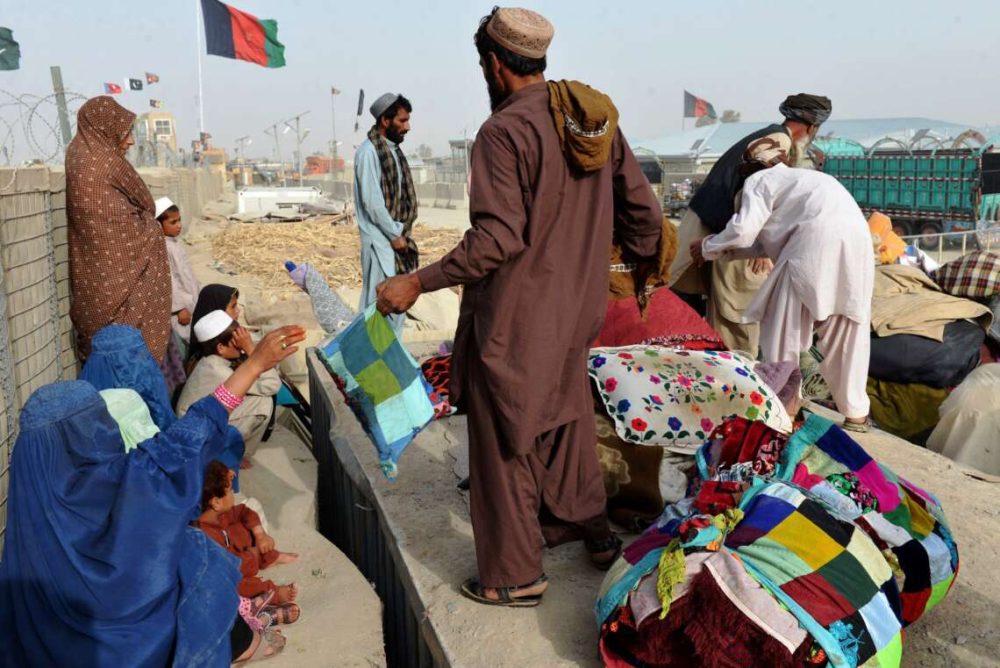Middle Eastern countries have differed on the US-brokered normalization agreement between Israel and Bahrain, which came less than a month after the United Arab Emirates (UAE) and Israel reached a similar deal. The same kind of criticisms which surfaced post the UAE-Israel agreement are being repeated by the Palestine Government and nations including Iran and Turkey.
A joint statement issued on Friday by US President Donald Trump, Israeli Prime Minister Benjamin Netanyahu and Bahrain’s King Hamad bin Isa Al Khalifa hailed the Bahrain-Israel agreement as “a historic breakthrough”, reports Xinhua news agency
Bahrain, the second Gulf Arab country to normalize ties with Israel after the UAE announced a similar deal on August 13, is scheduled to sign the peace agreement with Israel on September 15 at a ceremony at the White House, during which the UAE-Israel deal will also be inked.
On Saturday, senior Bahraini officials welcomed the normalization with Israel as a contributor to regional security and stability.
The country’s Parliament, the National Assembly, also called for achieving a “just and comprehensive peace based on the two-state solution” to end the Palestinian-Israeli conflict.
However, the Bahrain-Israel deal has enraged the Palestinian Authority, which strongly condemned it, while blasting the US for pressuring Arab countries into normalizing ties with Israel.
Shortly after the announcement of the Bahrain-Israel deal, the Palestinian leadership issued a statement condemning the Bahraini move as “a betrayal of Jerusalem, Al-Aqsa Mosque and the Palestinian cause”.
Palestinian Minister of Foreign Affairs Riyad al-Maliki said that he would recall the Ambassador to Bahrain for consultations on how it would take “necessary steps” to respond to the move.
In separate statements, the Islamic Hamas movement, which controls the Gaza Strip, and the Palestinian Islamic Jihad slammed deal as “a clear aggression against our people” and “a blatant coup against all Arab, national and Islamic constants of Palestine”.
Iran, Israel and the US’ top rival in the region, on Saturday vehemently condemned Bahrain for taking the step, adding that it was a “fundamental mistake” to “seek shelter” in Israel instead of “gaining legitimacy from its people”.
The Iranian Foreign Ministry said that the US presidential election due in November is one of the reasons for Bahrain to “sacrifice the cause of honourable Palestine”, warning that Tehran will hold Manama accountable for all the consequences of any action leading to Israel to “create insecurity in the Gulf region”.
Turkey also expressed strong condemnation and concern about the development which “violates the Arab Peace Initiative and the commitments made by the Organization of Islamic Cooperation”.
The Turkish Ministry of Foreign Affairs called Bahrain’s move as “a heavy blow to the efforts to defend the Palestinian cause”, which will deepen Israel’s “illegal acts” in Palestine and encourage Israel to continue to occupy the Palestinian lands.
It stressed that the only way to establish peace and stability in the Middle East is to resolve the Palestinian issue fairly and comprehensively within the framework of international law and UN resolutions.
On the other side, Egypt, the first Arab country to sign a peace deal with Israel in 1979, and the UAE both welcomed the Bahrain-Israel peace deal.
In a statement, Egyptian President Abdel-Fattah al-Sisi said that he valued this important step toward establishing stability and peace in the Middle East, in a way that achieves “a just and permanent settlement of the Palestinian issue”.
The UAE congratulated Bahrain and said that it hoped the agreement will have “a positive impact on the regional and international peace and cooperation atmosphere”.
But Jordan, the second Arab country to sign a peace deal with Israel in 1994, sounded a more cautious note.
Jordanian Foreign Minister Ayman Safadi said that ending the Israeli occupation and resolving the Palestinian-Israeli conflict based on the two-state solution play the key role in realizing peace in the Middle East.
Safadi called for stopping all Israeli measures that undermine the two-state solution, and for creating an independent Palestinian state on the 1967 borders with East Jerusalem as its capital, in line with the 2002 Arab Peace Initiative and the international resolutions.
“The effect of such deals relies on Israel’s actions,” he added.









